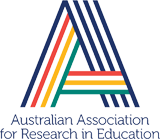Aims:
- to deliberately interconnect education-related research colleagues within Australia who use quantitative research methods;
- to offer a visible identity and promote activities of the group;
- to attract new researchers using quantitative methods in education to AARE.
Rationale:
We perceive both a gap and an opportunity to deliberately interconnect education-related research colleagues within Australia who use quantitative research methods, and offer a visible identity to promote activities of this new group. We note that AARE already has a Qualitative Methods SIG. Government bodies and policymakers are increasingly drawing on research that is quantitative and large-scale. Although ACSPRI offers quantitative workshops technical training in Australia, it is not specific to education-related research, neither does it address our other foci: to facilitate and promote collaborations/joint proposals, collegial networks/belonging to like-minded community, and mentorship/capacity building for junior researchers.
Research interests:
The primary substantive field of research of most interested members who pre-filled our EOI was educational psychology. The potential members share methodological interests, using methods which include:
Surveys, Diary data, Observations, Interviews/Focus groups, Experiments/quasi-experiments, Digital and online data (e.g., web-scraping/social media), Physiological/sensory/wearable data; and quantitative analyses such as: Latent variable models, Multilevel models, Multivariate (e.g., M/ANOVA, canonical, discriminant), Regression models, Item-response models/Rasch scaling, Cluster/latent class analyses, Network analysis, Propensity-score matching, Non-parametric methods, Meta-analysis, Mixed-methods, Machine Learning Methods/Large Language Models, Bayesian Statistics.
Proposed activities:
Proposed activities fall into 4 main broad areas of workshops/methods training, collaborations/joint proposals, collegial networks/belonging to like-minded community, and mentorship/capacity building for junior researchers.
